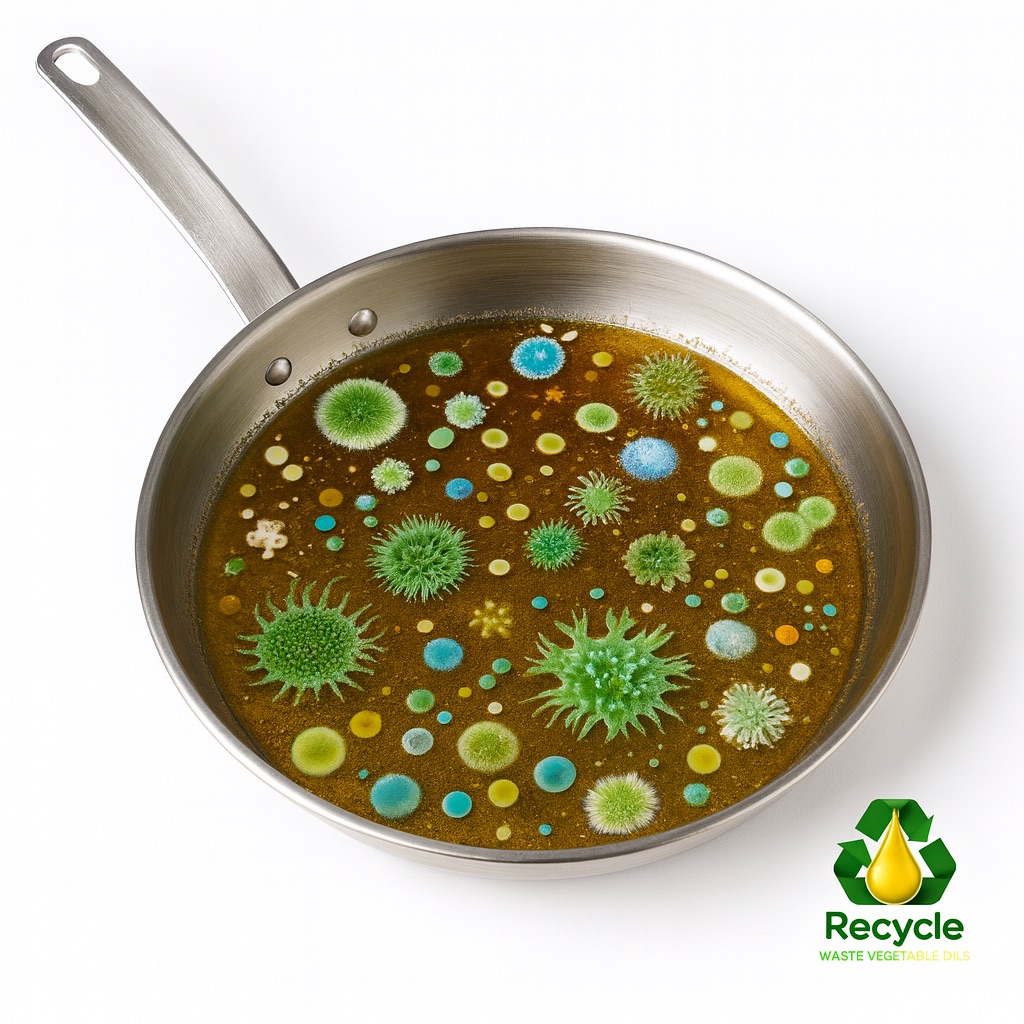Home / Contact Us / About Us / Our Services / North Yorkshire / East Riding Yorkshire / South Yorkshire / West Yorkshire / Greater Manchester / Derbyshire / Reference / FAQ

Cooking Oil & Food Hygiene
In commercial kitchens, the quality of cooking oil plays a vital role in the food you serve for hygiene. Whether it is used for frying chips, chicken, or other popular menu items, oil directly affects taste, texture, and safety. Regularly changing vegetable oil in fryers is not just a matter of presentation. It is a key requirement for hygiene, customer health, and the overall success of your business.
The Role of Vegetable Oil in Food Preparation
Fresh oil helps create golden, crisp food that smells and tastes appetising. Over time, however, oil breaks down as it is repeatedly heated and exposed to food particles. This process affects both flavour and safety. Degraded oil can develop unpleasant tastes and harmful compounds that have no place in a professional kitchen. Understanding why and when to change oil is essential for protecting both customers and reputation.
Why Oil Should Be Changed Regularly
There are three main reasons to keep fryer oil fresh: food safety, food quality, and business protection.
Food safety
Oil that is not replaced often enough can become a breeding ground for bacteria and contaminants. When food residues are left in oil, they create conditions where microorganisms can grow. Consuming food cooked in such oil may lead to food poisoning or other health issues. In addition, the chemical breakdown of oil produces compounds that can be harmful to health if consumed in large amounts.
Food quality
Customers can quickly notice when food is prepared in old oil. Instead of a light golden finish, fried food may look darker, greasy, or unappetising. The flavour can turn bitter, and the aroma may be unpleasant. Poor quality results not only disappoint customers but also discourage them from returning. In a competitive industry, one bad meal is often enough for a customer to choose another venue next time.
Business protection
Failing to maintain clean oil can harm your business. If diners become ill, the outcome can include complaints to health authorities, negative publicity, or even legal claims. Financial losses can occur through fines or closures, and rebuilding a damaged reputation is very difficult. On the other hand, consistent oil changes show professionalism and care, helping build trust and loyalty with your customers.
How Often Should Fryer Oil Be Changed?
There is no single schedule that fits every kitchen. The rate at which oil needs changing depends on what is being fried, how often the fryer is used, and the quality of the oil. However, some general guidelines can help:
- Monitor oil daily at the start and end of shifts. If it smells rancid, looks very dark, or foams heavily, it must be replaced immediately.
- In very busy kitchens where fryers run constantly, oil may need replacing every one to two days.
- In medium-use fryers, oil can sometimes last three to five days if it is filtered and maintained properly.
- In lower-use fryers, oil can last up to a week, though close monitoring is always necessary.
Daily filtering helps extend the life of oil by removing particles, but filtering cannot prevent chemical breakdown. Replacement is always required eventually.
Signs That Oil Needs Replacing
Some common indicators that fryer oil is past its best include:
- Dark or sticky appearance
- Unusual odours or strong aftertaste on food
- Excess smoke while heating
- Food absorbing too much oil and becoming soggy
- Excessive foaming around food during frying
The Impact of Food Poisoning on Your Business
One of the biggest risks of not changing fryer oil is foodborne illness. Customers who become unwell after eating at your business are unlikely to return, and the incident can spread quickly online through reviews and social media. Food poisoning cases may also result in inspections, fines, or even enforced closures. The long-term damage to your reputation can far outweigh the cost of regular oil changes.
In contrast, businesses that take oil management seriously create a reputation for reliability and care. Customers are reassured that hygiene standards are high, and they are more likely to return and recommend the business to others.
Best Practices for Fryer Oil Management
To ensure consistency and safety, businesses should establish clear routines for oil management:
- Check the condition of oil at the beginning and end of shifts
- Filter oil daily but also commit to full replacement when required
- Train staff to identify signs of oil degradation
- Clean fryers regularly to prevent build-up of old residues
- Keep records of oil changes as part of kitchen hygiene procedures
Conclusion
Changing vegetable oil regularly in commercial fryers is an essential practice for any food business. It ensures that meals are safe, appetising, and consistent, while also protecting against serious risks such as food poisoning or loss of reputation. Customers notice the difference between food cooked in fresh oil and food prepared in oil that has been neglected. By taking fryer oil management seriously, you show your commitment to quality and customer care. In a highly competitive market, these details make the difference between success and failure.






